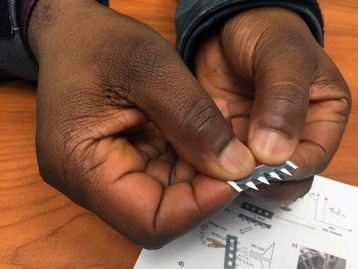In the News: What's Up with Apps
"It’s been, for years, going through these nonstop hoops of fire to get birth control ... if I went through my normal physician and the referrals, I would be six months pregnant before I would get my hands on it.” |
Here's some surprising and innovative ways that apps are shaping health and social movements around the world:
|
Inexpensive Paper Strips Help Test for Cancer, Malaria in Developing CountriesChemists at The Ohio State University are in the process of developing paper strips that can detect life-threatening diseases, including some cancers and malaria. Users can apply a drop of blood to the strip and then send it to a lab to be tested, according to a news release from the university.
The method will be particularly useful for underserved people living in rural areas who lack access to medical care. |
This Ring Can Help Stop the Spread of HIV in WomenProtecting against HIV infection continues to be an ongoing challenge - but a new product for women is showing promise. In a recent trial of 2,629 women from Malawi, Uganda, South Africa and Zimbabwe, test results showed that a vaginal ring containing an antiretroviral drug called dapivirine can provide significant protection against HIV when used consistently for at least a month at a time.
|
"If the new Zipline system works, every one of Rwanda’s 11 million citizens could soon be a short drone ride away from any essential medical product."
--From "A Life-Saving Drone Takes Off in Rwanda"
|
|
A Life-Saving Drone Takes Off in RwandaThe first company to start making drone deliveries at a high volume won’t be Amazon or DHL, but a startup sending medical supplies to hospitals throughout Rwanda.
Here's the story of how a San Francisco-based company (Zipline International) reinvented the drone to distribute medical supplies in rural Africa. |



